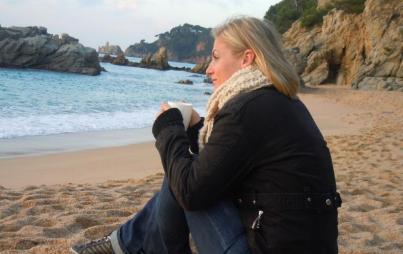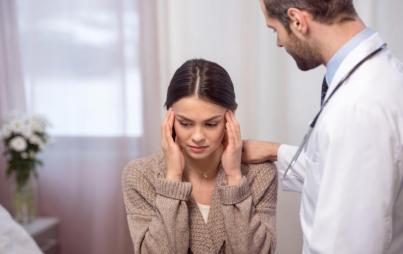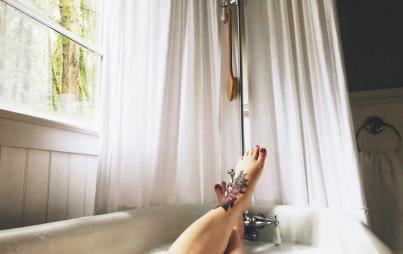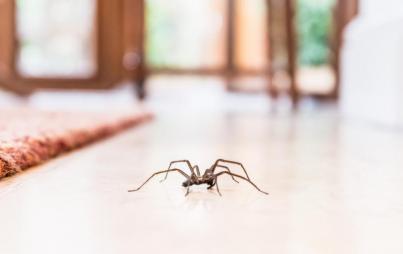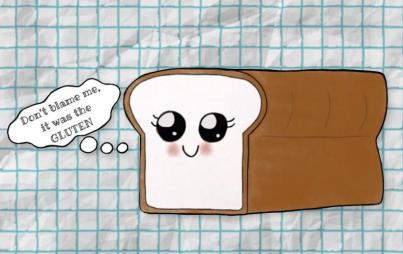
Preventative healthcare is a pain in the ass. I’m not supposed to say that, because preventative healthcare is also the best way to detect cancer in its earliest stages, the best way to stay out of the hospital, the best way to keep your physiological systems doing their homeostatic thing. I’m not supposed to say it’s a pain in the ass because I’m a nurse, and one of the things nurses are supposed to do is promote health. Preventative healthcare is the best way to do that.
It’s also a pain in the ass.
Because it is a pain in the ass, even for a nurse. I ignored the annual mammogram reminder letter from my PPO. I also pretended that because I’ve never had an abnormal pap, and I’m monogamous, that it’s perfectly fine to go five years without a gynecological exam.
How I ended up in the sterile room of a medical clinic, instead of a gynecologist office, is a story that is part shame, part desperation, part convenience.
Regardless, I ended up there, sitting in a waiting area, full of other people waiting. People standing around, standing in line, being ignored. I ended up, eventually, sitting on a cold crunchy-paper-covered table, alone, waiting to see the familiar face of a midwife I’ve known for enough years that the idea of her hands inside my body doesn't completely freak me out.
I ended up here wondering how the other people ended up here. I wonder if they chose to be here. No one likes to stand around. No one like to wait. No one likes to be ignored. I bet they didn’t choose to be here. I bet they didn’t have a choice at all.
It was this midwife that drew me here, to this office on the south side of town, to seek care I could have gotten in the more posh office 30 minutes away. It wasn’t the decor (there is none). It wasn’t the attentive customer service or the cleanliness of the building (also none). It wasn’t the ceiling mounted television that runs children’s programming in Spanish on loop, or the security guard that mills around outside, pretending to care about gang violence, but instead playing Candy Crush on his phone.
It was simply the desire to see the face I’d seen before, and the assumption that an exam is an exam, regardless of where you get it.
It was Beyond Before and After, this column, that pushed me to make the appointment, to have the blood drawn, to step on the ancient scale, to do the hands in the vagina thing and the squashing of the boobs thing.
I didn’t think I’d need anything more that a simple exam.
Once I realized I did need something more, I was so far into the clinic system, it made sense to stay. Treatment is treatment, after all.
I started bleeding the day before I went in for my initial appointment. Not the kind of bleeding that means you’re going to need to double up maxipads. Not the cramps that are annoying but not hard to ignore.
This was the bleeding that was made of clots the size of baseballs, and the cramps it takes to expel those clots.
It had been a while since I’d had any real menstrual cycle to speak of, though I guess one every six months is still technically cyclical. I figured the irregularity was the cause of this far more than minor bleeding — a simple catching up to periods skipped.
But it didn’t stop. For three months I bled off and on, and then it struck again in earnest. I went back to the midwife who seemed genuinely appalled to discover I was still bleeding, despite the medication she prescribed that should have halted it.
She shifted care to an OB, a older guy that I never ever saw. Then, after I heard he wasn’t the best doctor, I shifted care to another female doctor. I never saw her either. My hemoglobin was plummeting, down to nine. The midwife suggested another hormonal med, and then, in the flurry of a busy day, failed to call it in.
The next morning when I found I had no medication, I called the office to discover she was off. I asked for a physician. The receptionist sounded puzzled. How dare I demand attention.
That morning I fell onto my bedroom floor, faint from blood loss and a low blood pressure. I went to the ER where they gave me one percocet, in the foil, and 10mg of Provera — again to allegedly stop the bleeding.
I went for my third follow up, still having made no progress toward an actual solution. Still bleeding.
I waited two hours for a physician that never arrived, an emergency at the hospital held her up.
It doesn’t make what happened to me in that clinic OK, but it does make me lucky to have survived it. And health should never come down to luck.
I sat in the waiting room for those two hours, reading a novel I’d just received from my Book of the Month Club, one of three NY Times best sellers I’d ordered that month; I order every month. The TV played the Spanish cartoon — stuffed characters talking about sharing from what I could decipher. The woman next to me read a small book of numbers to her toddler son who was wearing a hearing device (a cochlear implant, maybe) and had trouble understanding her. She raised her voice, and he responded by counting the objects on the page.
I watched a number of folks come and go, the majority Spanish speaking, many requiring assistance with forms and information they didn’t seem to understand. Women with coughing, crying infants. Elderly folks wearing masks, being guided by their younger, also elderly, children. Folks with oxygen, wheelchair bound. Kids with fevers. Women with bellies full of baby, and shirts that no longer met in the middle.
They waited, as I waited. They didn’t complain. They watched the TV, whether or not they were interested in the cartoon, I don’t know. After one hour had lapsed, the medical assistant told me she’d need to reschedule my appointment. She was surprised to hear me say I’d wait. Surprised to hear me say that my bleeding couldn’t wait for another appointment.
At the two hour mark, she tried to reschedule my appointment for a week and a half away. I took the appointment card — Tuesday, 1 pm — and went to the front desk to ask for my medical records. The staff didn’t know what to do with a woman insistent on having a printout today. They sent me away with a request paper and an estimate of 30 days. Thirty days to receive the medical history that belongs to me, the story of this dangerous situation, of my body.
I was still bleeding. I was still bleeding a lot. I wasn’t being seen, or heard. There were no plans in place, no doctor to see me through a needed surgery.
I called the other gynecologist's office, the one 30 minutes away. I left a message for the midwife that delivered my last baby, the one I should have called but didn’t want to bother with a simple checkup. My message simply said, “I need help. I’m bleeding. A lot. Can you call me?”
Fifteen minutes later she had called in a new prescription, angry that the first hadn’t been ordered properly, dosage too low, duration too short. Five minutes after, that I had an appointment for the next day.
Sixteen hours after that, I was sitting in the office she shares with the gynecologist I should have seen to begin with, filling out my lengthy medical history, reclined in a velvety, brown chair. The walls were covered with giant canvases of newborn babies, sleeping, snuggled in basket, swaddled in muslin, surrounded by flowers, babies that had been delivered by this practice of six OB/GYNS.
A half hour after that, I was walking out with a new prescription and a promise of surgery. As soon as possible. The medical assistant apologized, with true sincerity, the da Vinci machine (intended to assist in my surgery) was backed up until November. I’d have to medicate until then and hope to keep the bleeding at bay.
Twenty-four hours after, I had my surgery date for ten days later.
I didn’t need to plead or fight for care. I didn’t have to wait two hours or be shuffled between three care providers. I didn’t have to explain my case a dozen times to a dozen people who couldn’t understand why I was so insistent, why hemorrhaging is so dire.
I asked for care and care was given. It was given in a beautiful office with images of cherubic infants all around, where staff answered questions with a smile and apologized for any delay or inconvenience.
When I told the doctor that I’d sought clinic care first, he stared blankly, “Why? Why would you do that?”
I thought I just needed a pap. Isn’t medical care medical care? Isn’t a pap the same if you're indigent, immigrant, Spanish speaking, low income, or from the south side of town? Isn’t bleeding bleeding? Isn’t it seen with the same urgency, regardless of insurance or social strata? Isn’t a PPO as good as government provided care?
The answer is no. Emphatically, no.
I’m a nurse. I’ve been on the frontlines of medicine. I was naive to think it wouldn’t matter. I so desperately wanted it not to matter.
I was devastated to consider that while I spoke up and was given care, there was a room full of people who did not.
How could it be that there was a room full of people so grateful to have care at all, that to demand it seemed greedy? That there was a room full of people who may not had received care at all?
I’m a nurse. I’ve carried an unreasonable patient load. I’ve been asked to do far more than anyone should be asked to do, all in the name of medical care that doesn't really seem to care. There isn’t enough to go around. Not enough money, not enough care. Not enough.
I’m a nurse. I know that routine medical care is the key to wellness. And now I know that receiving routine medical care is not the same for every human.
And I know I’m lucky.
I’m lucky to have good insurance that lets me choose a physician. I’m lucky that I can order three books from the BOTM club every month, and spend my time in a waiting room reading instead of wondering if I’ll be treated properly, or at all. I know I’m lucky that I speak English, and I know that bleeding for three months is not only inconvenient, it’s dangerous.
Because that’s what privilege is: luck. I happened to end up with the kind of life that allows me to chose my own healthcare, to advocate for myself in a language that everybody else around me speaks and respects. It doesn’t make what happened to me in that clinic OK, but it does make me lucky to have survived it. And health should never come down to luck.
I know that many do not know this; they do not know they deserve more. And I do not know how to fix it, or if it can be fixed.
I know that what people need, what they deserve, they are not getting.
Want to follow my journey? Join in? Cheer me on? Cry with me?
Follow me on Instagram and Twitter and Beyond Before & After here.
Join our Facebook group.
And drink your water.


